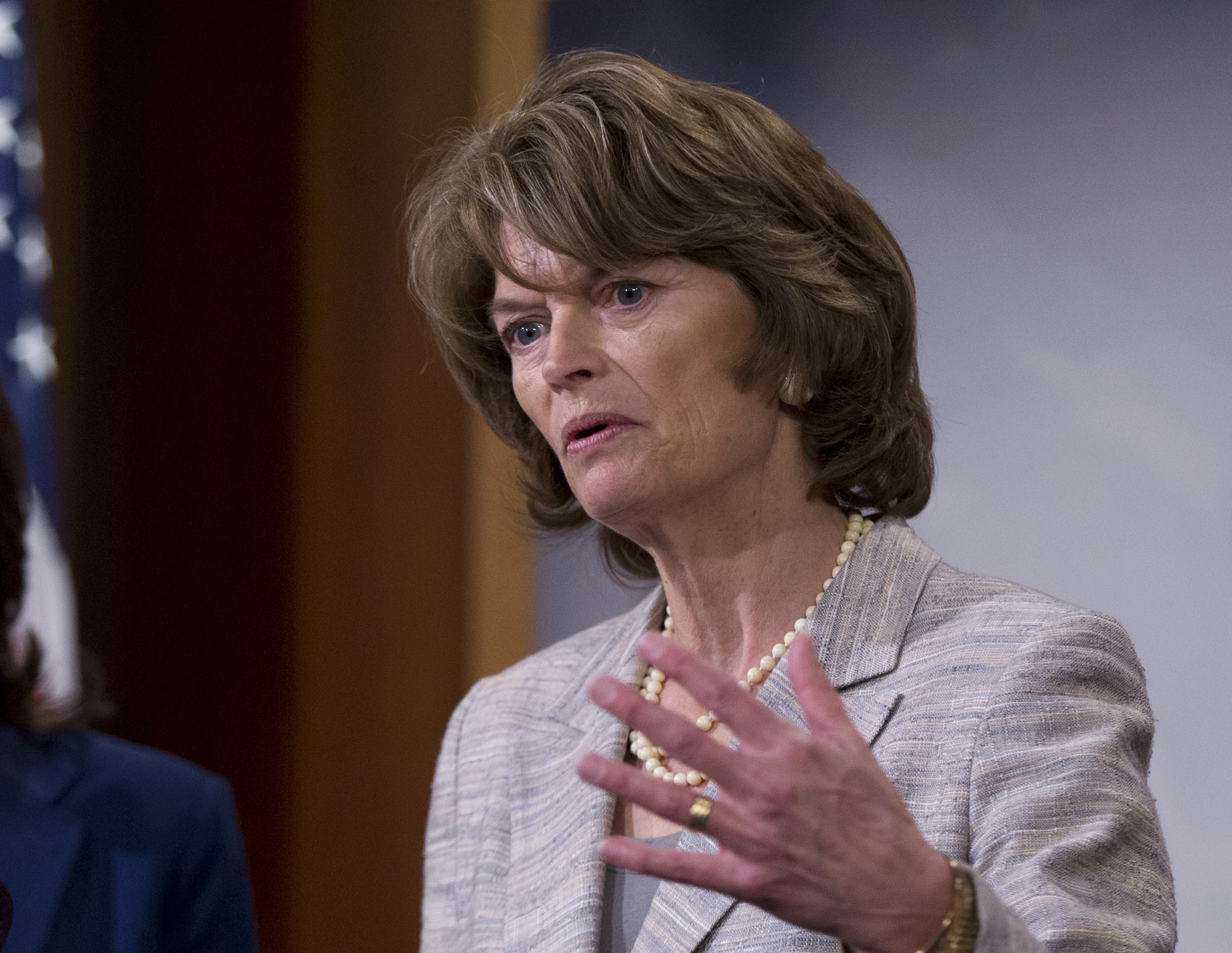WASHINGTON — Donald Trump’s nomination of school choice advocate Betsy DeVos as education secretary appeared in jeopardy Wednesday with two Republican senators saying they will vote against her.
Amid fierce criticism from Democrats and teachers unions, Sen. Susan Collins of Maine and Lisa Murkowski of Alaska announced their opposition to DeVos due to her lack of experience in the nation’s public schools. If she loses the support of one more Republican — and all Democrats vote against her — the nomination dies.
“Mrs. DeVos is the product of her experience,” Collins said. “She appears to view education through the lens of her experience promoting alternatives to public education in Detroit and other cities.”
Murkowski said she believed DeVos, a billionaire Republican donor and promoter of charter schools, has much to learn about public education.
“I have serious concerns about a nominee to be secretary of education who has been so involved on one side of the equation, so immersed in the push for vouchers that she may be unaware of what actually is successful within the public schools and also what is broken and how to fix them.”
If all other GOP senators support DeVos, and all Democrats oppose her, she would end up with a 50-50 vote in the Senate and Vice President Mike Pence would have to break the tie to confirm her. The Senate voted 52-47 on Wednesday to move ahead on the DeVos nomination, a party-line vote. Despite their opposition to the nomination, Collins and Murkowski voted to allow the nomination to go forward. A vote is expected in the coming days.
Sen. Lamar Alexander of Tennessee, the Republican chairman of the Health, Education, Labor and Pensions Committee, praised DeVos as an “excellent” pick for the job.
“Mrs. DeVos believes in our children, their teachers and parents — she believes in the local school board instead of the national school board,” Alexander said in a statement. “She’s committed to public education, and there’s no better example of that than her work on the most important reform of public schools in the last 30 years — public charter schools.”
Shortly after Collins and Murkowski announced their opposition, Sen. Dan Sullivan of Alaska was asked about her nomination and would not commit to supporting DeVos. He told The Associated Press that he hoped DeVos will pay attention to remote rural schools like those in his home state, where “there is no choice at all.”
A few hours later, he announced his support for her. In a statement, Sullivan said he shared the concerns of Murkowski, but that DeVos has “committed to me that she will work with all Alaskans to strengthen education throughout the state, in both public and private schools.”
White House press secretary Sean Spicer said he wasn’t concerned about the defections by Collins and Murkowski.
“I have 100 percent confidence she will be the next secretary of education. She is an unbelievably qualified educator and advocate for students, teachers, parents,” he said after the two senators announced their opposition.
Democrats have vigorously opposed DeVos, questioning her commitment to public education, knowledge of federal education law and her overall qualifications to lead the Education Department. They also have expressed concerns about possible conflicts of interest with her finances and political donations. Civil rights activists also fear that her conservative religious views will make her a weak advocate for LGBT students and other minorities.
Randi Weingarten, president of the American Federation of Teachers, expressed hope Wednesday that other Republicans would also reconsider their support for DeVos.
“The more people get to know how ill-equipped Betsy DeVos is to strengthen public schools, how disconnected she is from public schools, and how her record is focused on pursuing for-profit charters and vouchers and not on helping children, the more the people who believe in the importance of public education are joining to oppose her,” Weingarten said.
DeVos, 59, is the wife of Dick DeVos, the heir to the Amway marketing fortune. She has spent more than two decades advocating for charter schools in her home state of Michigan, as well as promoting conservative values.
At her confirmation hearing last month, she pledged to address “the needs of all parents and students,” but said a one-size-fits-all model doesn’t work in education.
——
Associated Press writers Erica Werner, Jennifer C. Kerr and Darlene Superville contributed to this report.

